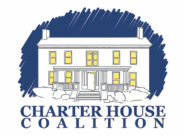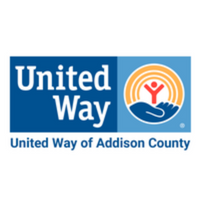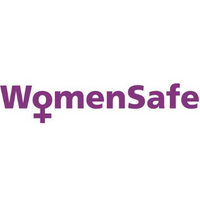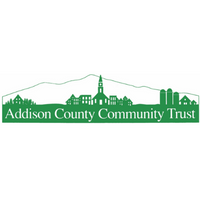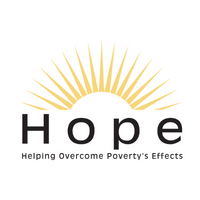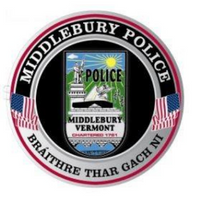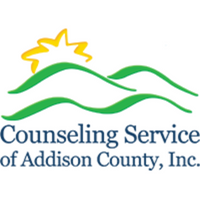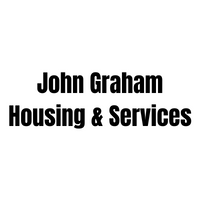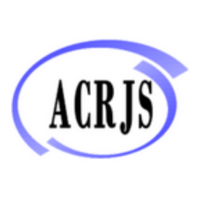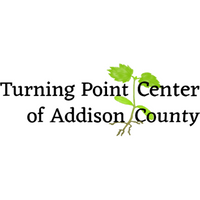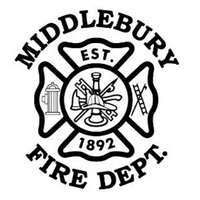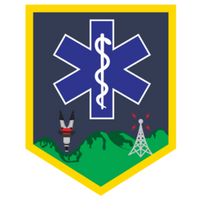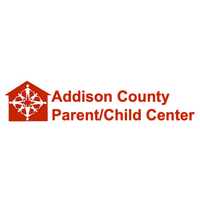About Charter House Coalition
What We Do
Charter House serves adults experiencing homelessness in and around Addison County, Vermont. The shelter, which operates 365 days per year, provides safe, comfortable temporary housing for up to 25 individuals while professional staff provide housing case management, a meal program for shelter guests and anyone else who needs a meal, and street outreach. Charter House is the lead agency for coordinated entry and referrals in Middlebury.
Meet Our Board
 Mary Jane Nottonson, President
Mary Jane Nottonson, President
Mary Jane is a healthcare management professional with a career in skilled nursing administration. She has served on the Charter House Board for several years and became president in 2025. She moved to Addison County in 2017 and enjoys nordic skiing, hiking, bicycling, and gardening.
 Stephen Diehl, Vice President
Stephen Diehl, Vice President
Stephen is associate director of public affairs at Middlebury College and is pleased to bring his many years of professional communications experience to the Charter House board. A lifelong Vermonter, Stephen is a fast walker, a slow runner, and an avid hiker who loves being out in the Vermont landscape.
 Walter Stugis, Secretary
Walter Stugis, Secretary
A former Charter House Board president, and a graduate of Hamilton College and the NYU graduate business school, Walter enjoyed a long career in marketing for national clients. At Charter House he is focused on securing grants from private foundations and corporations, and manages marketing.
Grover Usilton, Treasurer
Grover has been a member of the Charter House Board since October 2024. Grover worked for the National Bank of Middlebury for 25 years. He was previously a board member of the Addison County Chamber of Commerce and the United Way of Addison County.
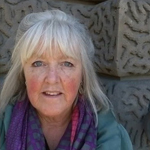 Judi Ellwood
Judi Ellwood
Judi has had a 45-year career as a nurse, and for the past twenty years worked in a Federal Qualified Health Center (FQHC) as a Nurse Practitioner. She holds a bachelor’s degree in nursing and a Masters of Science with an emphasis on psychiatric/mental health nursing.
 Nathan Hayes
Nathan Hayes
Nathan Hayes works as a Sergeant at the Middlebury Police Department. He supervises Field Training at the department and is an EVOC (Emergency Vehicle Operation Course) Instructor at the Vermont Police Academy.
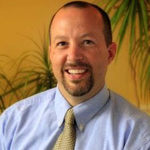 Jason LaRocque
Jason LaRocque
Jason is a founding partner of Otter Creek Engineering, now serving as president.
He serves on a number of community boards, including as Chair of the Patricia A. Hannaford Regional Technical School District and the Middlebury Development Review Board.
 Amanda Mowle
Amanda Mowle
Amanda is a practicing attorney with a focus on litigation, criminal defense, family law, general practice and assisting victims in navigating the legal system while preserving their rights.. She holds a B.A. from Lehigh University, J.D. from Vermont Law and Graduate School, and an LL.M from McGill University.
 Riley Nebolsine
Riley Nebolsine
Riley is a current student at Middlebury College, studying geology and religion. Riley began volunteering at Charter House Middlebury’s rugby team, and later became active as an independent volunteer and became the rugby team’s volunteer coordinator for Sunday dinners at the house.
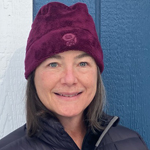 Vicky Wideman
Vicky Wideman
Vicky has been involved with Charter House for over a decade and previously served as president of the Board of Directors. Over the years, she has enjoyed engaging with guests, helping out in the kitchen, coordinating the vegetable gardens and working with Middlebury College interns.
 Keegan Gilsenan, Middlebury College Alumni Liaison to the Board
Keegan Gilsenan, Middlebury College Alumni Liaison to the Board
Keegan, a 2025 graduate of Middlebury College, served on the board as a student through his position as president of the Middlebury College Charter House Coalition Student Organization. Keegan stepped down from his position on the board after landing a job teaching history in his hometown of Greenwich, CT.
History
Charter House Coalition was chartered as a 501c3 in June 2006 when a few concerned community members realized there was a growing need for emergency shelter and meals in Addison County. A group of volunteers from the Middlebury Congregational Church launched the Community Suppers and Pleasant Street Community Housing programs a few months later.
Community Suppers served free warm and nutritious meals each Friday evening year-round, often serving 250 meals each week. The housing program began small, providing shelter for homeless people on an emergency basis.
In 2009, in response to increasing need within the community, Charter House Coalition responded again with two new programs: Community Lunches, and the Charter House Warming Shelter. Community Lunches grew to serve upwards of 50 lunches each day in our dining room and provided vital human connections for many at-risk community members.
The Charter House Warming Shelter began by providing a warm, safe place to sleep from mid-October to mid-April for up to 24 adults. In the early days, we also operated a separate shelter space for up to five families with children.
Growth to Meet Increasing Demand
Support programs steadily grew and we were designated by the State to be the Lead Agency for Coordinated Entry in Addison County – that means we are responsible for coordinating with all of the other social service agencies and affordable housing organizations to make sure that everyone that is homeless or at risk of being unhoused gets the support and referrals necessary to assist them to reach their permanent housing goals.
In 2019, Charter House provided 40,000 meals and 4,500 “bed nights” for people in need (a bed night is one person spending one night in the shelter). We were getting better and better at what we do, and doing more and more of it. That included keeping the shelter open even during the warm months because people deserve to have a safe place to sleep and a dignified connection to the community…even when it’s warm outside.
Rising to the Challenge of Covid
When the COVID-19 pandemic hit Vermont, hundreds of people in distress were sent our way from all around the state, and from beyond Vermont’s borders. Initially, we emptied the shelter to avoid a potential outbreak from the close-quartered congregate living, moving people to local hotels with State assistance. The community meals program converted to take-out only.
We eventually moved adults back to the shelter under strict Covid protocols, while also caring for approximately 100 people still in the hotels. Our kitchen served between 200–300 meals a day and our staff and volunteers delivered those meals to hotel guests’ doors, also making daily health and well-being check-ins. In 2020 our meal count shot up to over 90,000 and our “bed nights” went up to over 24,000. In 2022, bed nights were 35,000 and meals increased to 106,000.
Along the way, with emergency relief funding, we made significant upgrades to our shelter facility including a fresh air ventilation system, an outdoor pavilion, an elevator, new flooring, and shower and bath upgrades.
2006
Charter House Coalition chartered as a 501c3
Community Suppers & Pleasant Street Community housing programs launch
2009
Community Lunches introduced
Charter House Warming Shelter opens
2019
Charter House Shelter begins staying open all year
2020
Charter House Coalition adapts to continue providing services during the Covid-19 pandemic
2022 & beyond
Charter House continues to grow and improve upon existing processes to better serve our community
Why We Do This Work
We believe that everyone deserves a roof over their head and that no one should go hungry. Everyone deserves a chance to thrive in a community of genuine human connections. Everyone has these basic human rights, including our neighbors with mental illness, abusive family backgrounds, substance use disorder, or just plain bad luck.
We work closely with other social service agencies to make sure that everyone in distress gets the kind of support they need. And we depend on you, the people who share our belief in a mission based on doing right by all others. You volunteer, cheer us on, and provide the financial support we need to keep the doors open, the heat on, the meals cooking and the acceptance, love, and encouragement to keep improving lives.
By the Numbers
A big part of the Charter House Services Story can be told by the metrics of the outcomes we actually achieve.
Here are some service measures for the July 2021-June 2022 program period:
11,169
Bed Nights
46,000
Meals Prepared & Served
122
Households Served
There were 11,169 bed nights provided in our emergency shelter (bed night = one bed for one night); we served over capacity 29% of the year to meet demand. There were 46,000 meals prepared and served through shelter community takeout service and meal delivery. Thirty percent of households served county-wide were placed into safe permanent housing; more than half remained permanently housed after nine months.
Between shelter and community outreach, 122 households were served; more than half were categorized as chronically homeless. We added an on-site counseling option for emergency shelter guests including courses in citizenship and renters’ rights programs to learn how to be good tenants. We also added on-site substance abuse recovery coaching for emergency shelter and outreach clients.
The Charter House served several segments of people at risk, including 2 veterans, 37 people who experienced domestic violence, 8 people over 62, more than 60 people who are chronically homeless, 52 people who struggle with severe mental health challenges, and 22 people with diagnosed SUD (Substance Use Disorder). We also provided 11 emergency placements (after-hours law enforcement), hired 6 additional experienced staff members, and provided a full medical benefits package and competitive wages for all staff to recognize the outstanding work they are accomplishing.
